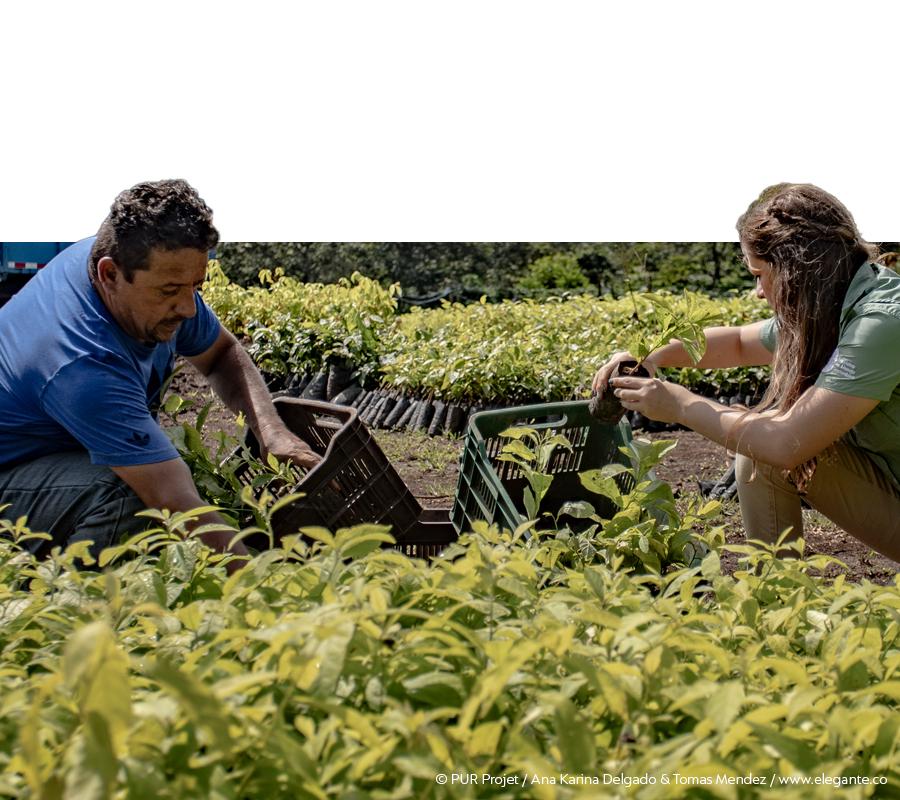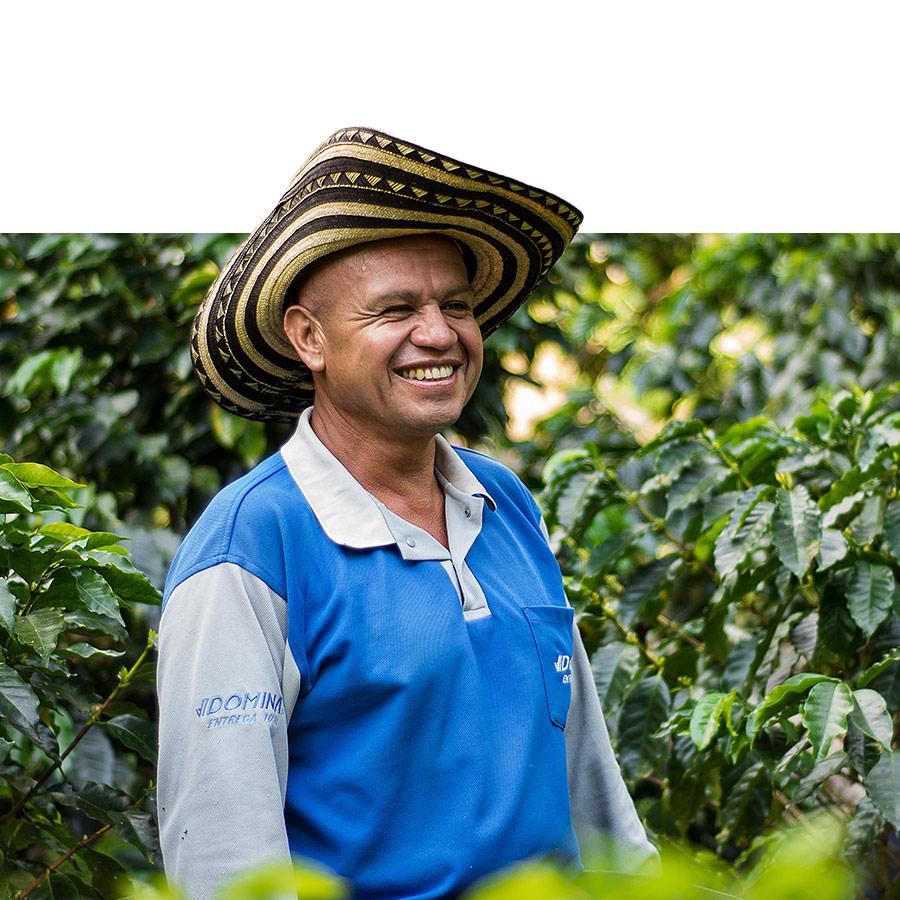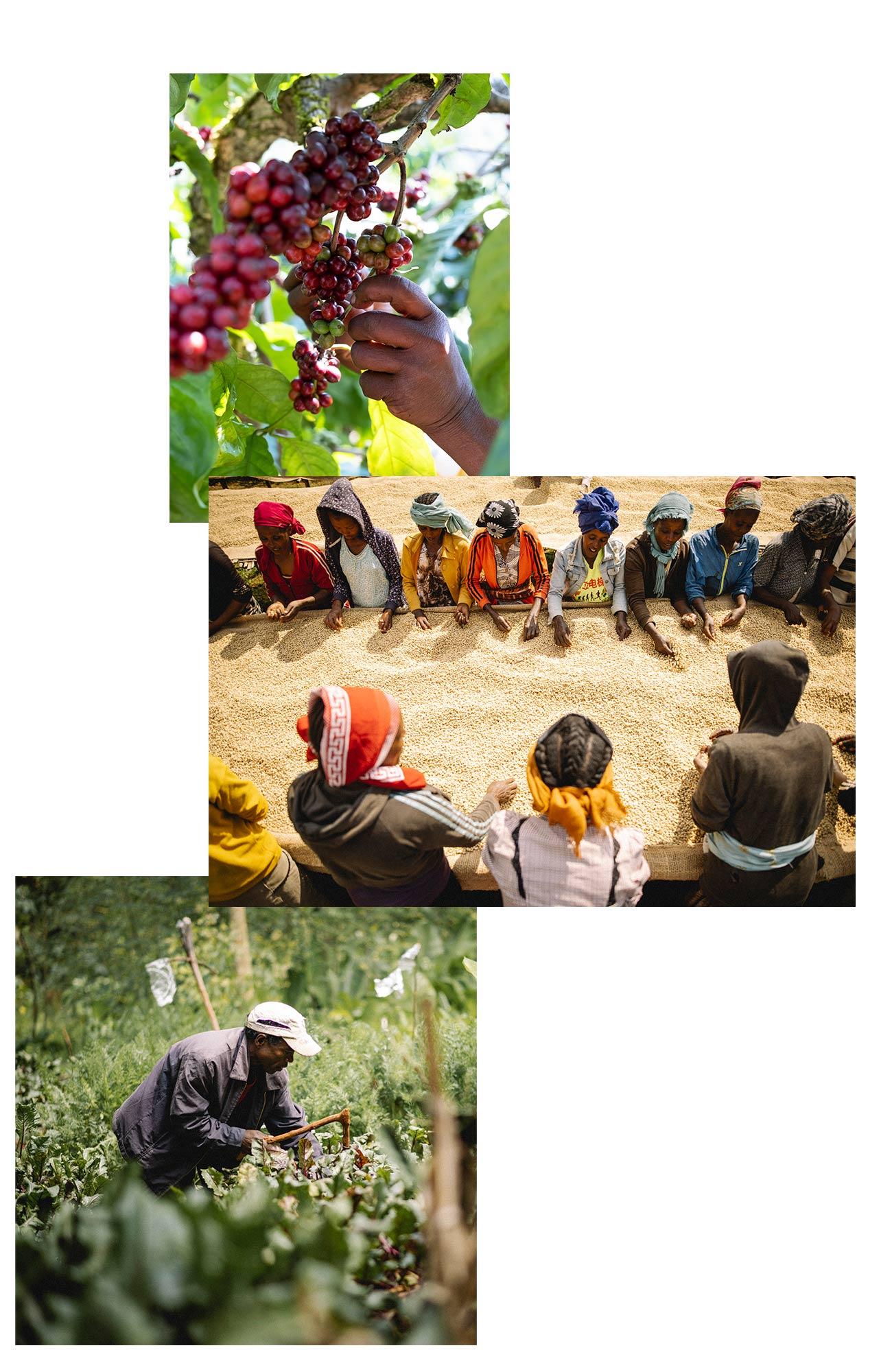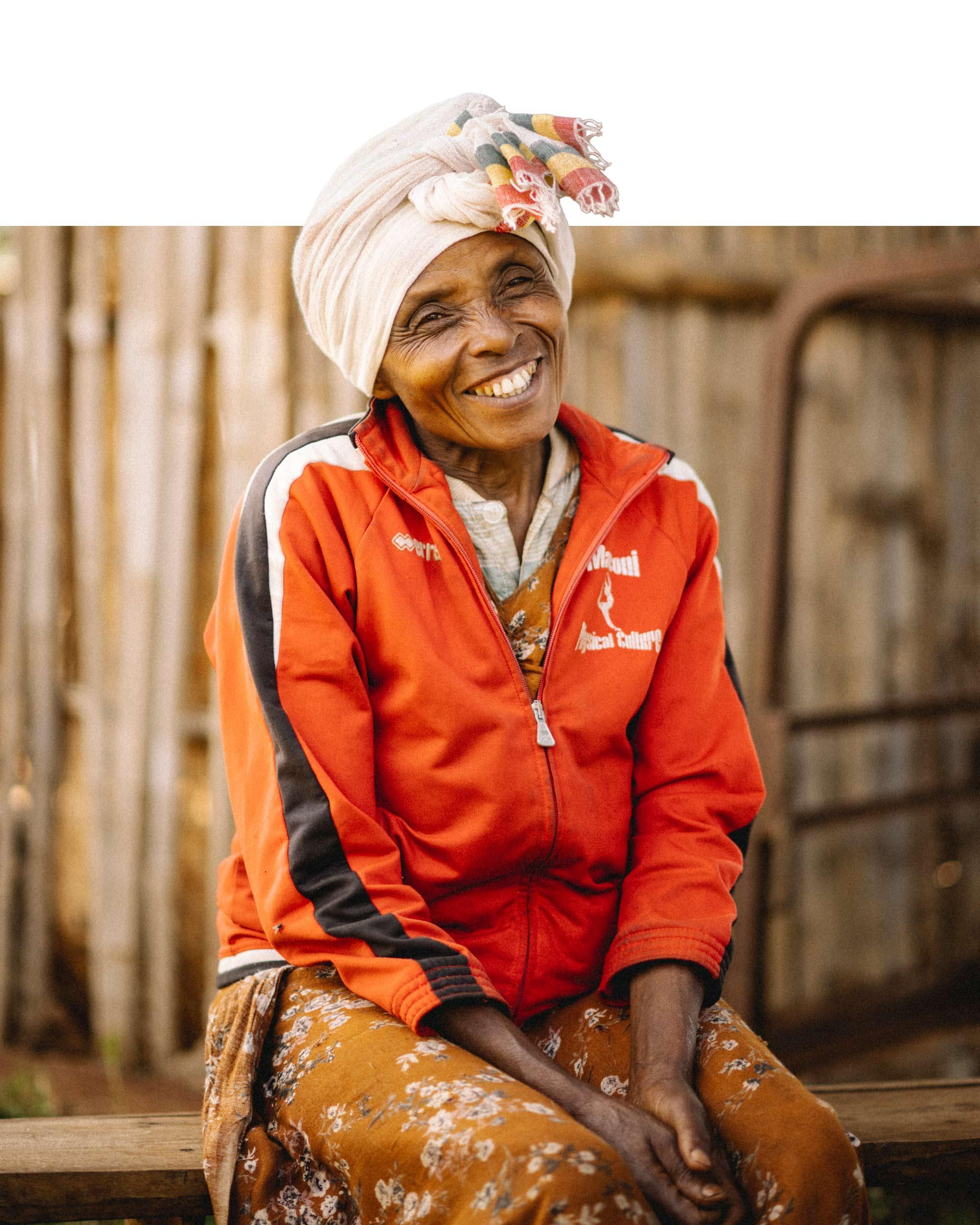
Article published in: May 2023
Article updated on: April 2025
Authored by
SHARON WAXMAN
Former President and CEO,
Fair Labor Association
PROTECTING THE HANDS THAT HARVEST
The coffee that we enjoy every day has been on a long journey before it reaches our cup. It starts as a seed that becomes a shrub, which produces a flower that then ultimately yields cherries, inside of which are coffee beans. All of these steps require care and cultivation from farmers and workers, who tend to the growth of coffee plants, making sure they thrive through sun and storm, drought and rain. While many coffee drinkers may not think about where their morning ritual began, Nespresso is involved at every stage.
Nespresso works with over 168,500 farmers in 18 countries around the world – where coffee farming communities are often facing a range of complex economic, social and cultural challenges. In some of these countries, one can observe weak labour laws that leave the many informal coffee workers unprotected, resulting in endemic labour issues. As a member of the Fair Labor Association (FLA), Nespresso recognises the crucial role that businesses, governments, and civil society all play in tackling these systemic issues across the global coffee supply chain, through a collaborative and comprehensive approach.


A COFFEE INDUSTRY FIRST
We are proud that Nespresso is the first multinational brand to seek FLA Accreditation for its coffee sourcing program, the AAA Susainable Quality™ Program. In partnership with FLA and our network of stakeholders from business, civil society, and academia, Nespresso has embarked on a comprehensive program with the goal of improving working conditions for all workers on coffee farms that grow Nespresso coffee.
THE FAIR LABOR STANDARD: WHAT FAIR LABOR ACCREDITATION MEANS
Fair Labor Accreditation is a rigorous multi-year evaluation process with a simple goal: to better protect workers across global supply chains. This means we assess, and identify opportunities to strengthen Nespresso’s Human Rights Due Diligence (HRDD) mechanisms and policies at a corporate level, and evaluate the implementation of those policies at the farm level, across all sourcing countries.
By assessing the HRDD policies and practices, we can learn whether the company’s risk assessments, purchasing practices, training, and other key actions are having a positive impact on the farmers and workers in their supply chain.
Fair Labor Accreditation supports company efforts to comply with HRDD laws, regulations, and guidelines, which require companies to map, identify, remedy, and mitigate risks throughout their supply chain and publicly report on their efforts. It also helps companies meet – and exceed – international requirements such as International Labour Organization (ILO) standards, UN Guiding Principles, the OECD due diligence frameworks, and the UN Sustainable Development Goals.

UNIQUE IN THE AGRICULTURE SECTOR
Fair Labor Accreditation is unique in the agriculture sector in that it offers independent, third-party validation of supply chain labour practices at company headquarters and at the farm level for specific commodities, including coffee, cocoa, hazelnut, palm, and several others. Through an extensive evaluation process, FLA independently verifies that the company has effective systems in place to prevent labour abuses, remediate violations when they do occur, and ensure ongoing compliance with international standards. This accreditation process reinforces the collaboration Nespresso has built with supply chain partners over many years.

How the Fair Labor Agriculture Accreditation Program Works
We start by evaluating risk to workers in a company’s supply chain by using a human rights risk assessment tool co-developed with experts at the Ross Business School at the University of Michigan. The tool evaluates company data on business practices as well as commodity-specific risk against a range of human rights benchmarks in every sourcing country. This involves using a range of publicly available reports from the ILO, the World Bank, the US Department of Labor’s List of Goods Produced by Child Labor or Forced Labor, and Freedom House.
This helps us to identify the high-risk countries in a company’s supply chain and leads to the development of a roadmap to guide company action. The roadmap also specifies a time-bound plan for how and when FLA will verify the company’s actions at both the headquarters and within sourcing countries; as well as what public reporting will be done based on when the company hits certain milestones or reaches Accreditation for the sourcing program – in this case, the Nespresso AAA Sustainable Quality™ Program.
While much of the work happens at the headquarters level, our focus remains on workers. Our Fair Labor Investigations process allows any worker, union, or civil society organisation to report serious violations of workers’ rights in facilities and farms used by FLA member companies. While each FLA member is required to have a robust grievance system for farm workers, this is an added safeguard for workers that supports the company’s system if needed.
FLA marks Fair Labor Agriculture Accreditation progress with five key milestones

|
Milestone I: Governance. FLA verifies that the company has developed headquarter and country level systems to track and improve labour standards for farmworkers. The company has also submitted a plan to achieve full traceability of its supply chain. |

|
Milestone II: Implementation & Monitoring. FLA verifies that the company has expanded traceability in accordance with its plan, developed farm-level monitoring tools, initiated assessments at sample farms, and established a farm worker safety net. |

|
Milestone III: Remediation. FLA verifies that the company has expanded traceability to high-risk countries and is implementing corrective action plans. |

|
Milestone IV: Full Implementation. FLA verifies that the company is implementing all ten FLA Principles in all high-risk countries. |

|
Milestone V: Accreditation & Maintenance. FLA verifies that the company has achieved full traceability of its supply chain and has systems in place for ongoing monitoring and improvement of labour standards for farm workers. |
“FAIR LABOR ACCREDITATION SERVES TO ASSESS, STRENGTHEN, AND EVALUATE OUR HUMAN RIGHTS DUE DILIGENCE (HRDD) MECHANISMS AND POLICIES AT THE CORPORATE LEVEL, AS WELL AS HOW THESE ARE IMPLEMENTED ON THE FARMS WHERE WE SOURCE OUR COFFEE FROM.”
MARTA GAROFALO, SOCIAL IMPACT PROGRAM MANAGER, NESPRESSO
FOSTERING FAIR LABOUR PRACTICES IN FARMS AND FIELDS
We are excited to work with Nespresso on this journey. By committing to the Fair Labor Accreditation process, and implementing a strong management system to assess, address, and report on labour conditions in its coffee supply chain, Nespresso is demonstrating its commitment to protecting the human rights of farmers, workers, and their families in a systematic and scalable way. In so doing, Nespresso is promoting industry-wide change and raising the bar through new and stronger standards for coffee brands across the globe.


